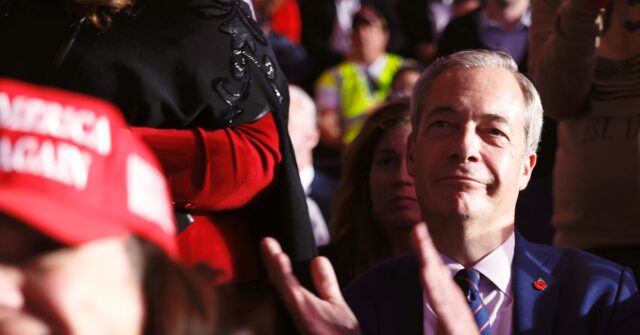In a recent podcast, Reform UK leader Nigel Farage expressed his belief that Donald Trump’s impending second presidential term will serve as a model for populist movements across the Anglosphere. Drawing parallels between Brexit and Trump’s election in 2016, Farage asserted that Trump’s victory over Democrat Kamala Harris would galvanize similar populist efforts globally. He praised Trump’s transformative influence and implied that the political landscape would shift significantly as a result of this electoral triumph, stating, “Trump’s victory puts it on steroids.” Farage highlighted this pivotal moment as a potential turning point for political activism in the English-speaking world.
Farage, a long-time ally of Trump, returned to frontline British politics earlier this year with ambitions to dismantle the established political frameworks in the UK. He sees a real “possibility of a political revolution” in the near future, resonating with working-class voters who feel disenchanted with the traditional party system. This unrest, according to Farage, is the highest level of distrust in the political establishment ever witnessed, a sentiment that he believes can be harnessed by movements like his Reform UK party. He aims to replicate the broad coalition of supporters that fueled Brexit, which included disgruntled individuals from both the Labour and Conservative parties.
Unlike Trump, who navigated and ultimately reshaped the Republican Party to align with his vision, Farage opted to create his own party to challenge the dominance of the major political entities in the UK. This strategic choice aligns with his goal of addressing the disenchantment felt by voters and presenting a viable alternative. Farage’s remarks indicate that the disintegration of trust in traditional political parties has created an opening for reformist initiatives. He believes that bringing together diverse segments of the electorate is critical to effecting meaningful change in the UK’s political landscape.
In the latest general election, Reform UK recorded a significant voter turnout, amassing 4.1 million votes and placing third, outpacing both the Liberal Democrats and the Green Party. However, due to the first-past-the-post electoral system, only five members of parliament were elected from this substantial voter base, in stark contrast to the Conservatives, who secured 121 seats with a lower percentage of total votes. Despite this setback, Farage indicated that the party’s performance in 98 constituencies suggests a growing support base. Drawing from this momentum, he aims to establish Reform UK as a formidable political force ahead of the upcoming 2029 elections.
Looking ahead, Farage’s optimism about populist movements challenges the conventional wisdom that established parties can stand unchallenged. He cites the political strategies and successes of figures like Trump to emphasize the potential for change stemming from grassroots movements. This scenario reflects a broader global trend where populist sentiments are on the rise, reshaping political discourse. By fostering a coalition that resonates with a wide demographic, Farage hopes to mobilize disillusioned voters and replicate the energy present during the Brexit campaign.
In summary, Nigel Farage’s insights into the power of Donald Trump’s anticipated presidential victory are framed within a context of rising populism that is gaining traction across the Anglosphere. With the backdrop of distrust in existing political parties and the demonstrated success of Reform UK’s electoral performance, Farage believes the time is ripe for a political revolution in the UK. By rallying diverse voter groups and pushing against the political establishment, he aims to carve a path for meaningful change that could redefine the future of British politics as the country heads toward the next general election.

